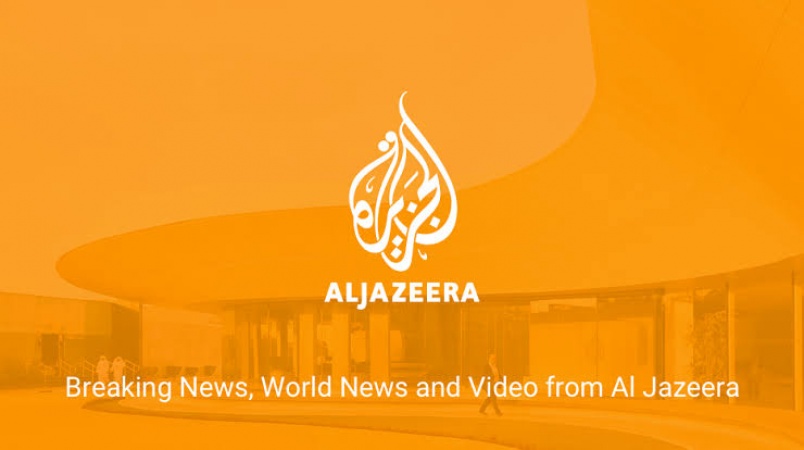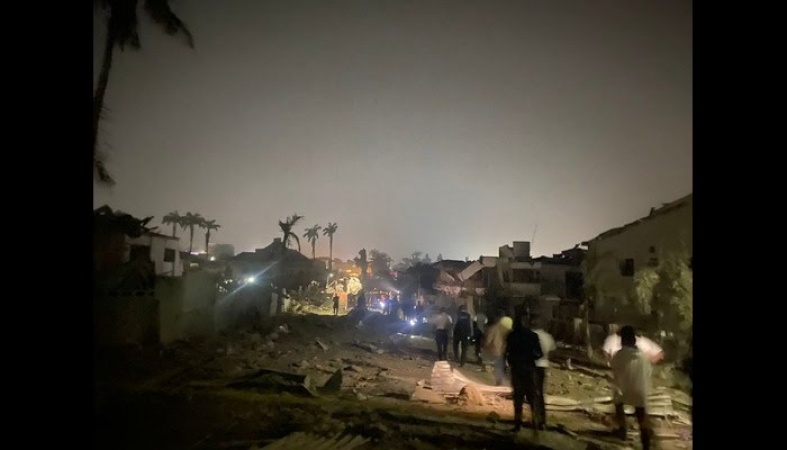OPINION: FRAMING OR NOT?: THE POLITICS OF NEWS ON AL JAZEERA
Posted by Shamsudeen Adelowo | 3 years ago | 1,585 times

For a number of reasons, Al Jazeera English is a significant player on the global news media scene. Its uniqueness as a non-Western, non-European station taking against the established giants of the international news media, particularly CNN Worldwide and the BBC, is an essential illustration of how international journalism and news are evolving, becoming less centralised than in earlier times. A change in "the political, economic, and technical settings in which media are generated and consumed" as well as an "increasingly global" infrastructure that permits an "international flow of images and ideas" are all factors that have contributed to the birth of Al Jazeera English.
Global crisis reporting has paid particular attention to the Middle East. Yet traditionally, these wars have been covered internationally from a "Western" viewpoint. There is a discursive divide between the Middle East and the rest of the world as a result of the absence of Arab voices in the global public sphere. Therefore, the introduction of Al Jazeera English may be seen as an effort to close this gap by airing discourses from and about the Arab world.
According to the media outlet's website, Al Jazeera English, which is owned by Al Jazeera Media Network, is supported in part by the Qatari government. The network's channels and activities are divided among a total of 70 affiliates worldwide, making Al Jazeera the second-largest media organisation in the world after the BBC. Despite Al Jazeera's repeated claims that they are editorially independent of the government of Qatar, concerns continue to be voiced from some parts of the world, with the argument that it is challenging to distinguish between the funding and editorial sway of the Qatari government and the actual Al Jazeera media network. Al Jazeera calls itself a private enterprise for the public good and describes itself as the "voice of the voiceless in some of the world's most underreported regions", however there are claims that there is inclusion of certain issues in Al Jazeera’s coverage and the omission of others. This led to speculation as to what affiliated political group influences the channel’s reporting.
There is no denying that every media outlet has a goal in mind while reporting on or discussing a certain topic. This goal often involves using various representations and framing techniques to influence listeners' emotions. In a sense, it can be said that journalists and media organisations are affected by the balance of political and economic power within the context of agenda setting and how that affects their social responsibility role to act as watchdogs rather than merely lapdogs or cheerleaders in the best interest of the people.
According to experts, instead of only providing facts to the public, news reporting has evolved into more of a narrative format with factual representation. The problem with narrative may be stated in respect to framing. It has been established that media professionals use actual situations or stories to highlight differences in their traits or levels. With the manner that topics are framed and manufactured for our consumption, framing has an impact on how we comprehend what is occurring in the world. To varied degrees, these media products influence how we perceive the world, and as a result, the information spreads misunderstandings through skewed or imbalanced reporting. Journalists specifically create frames by picking and packaging different bits of reality, then labelling those products with certain symbols or words. Additionally, because selecting certain stories inevitably obscures others, the media frames serve as "mobile spotlights" that may divert attention from certain aspects of reality.
In Al Jazeera's case, there have been allegations of biassed reporting, leading to the resignation of anchors and correspondents from cities such as London, Cairo, Moscow, and Paris. For instance, in 2011 Ali Hashem, a Shia reporter for Al Jazeera in Beirut, resigned over allegations that the news organisation had reported on the Syrian Civil War in a biassed manner. A year or so later, Aktham Suliman, the network's longstanding correspondent in Berlin, reportedly announced his resignation on the grounds that he was no longer permitted to function as an independent journalist. Suliman indicated the network has already altered its techniques of reporting the truth to being twisted and becoming a weapon for the Foreign Ministry of Qatar when he gave the reason for his departure.
In a related incident, 22 employees of Al Jazeera's Egyptian bureau announced their resignation in 2013, claiming that the news organisation was biassed in its coverage of the transfer of power in Egypt in favour of the Muslim Brotherhood. The media organisation has come under fire from a variety of sources for its coverage of the Israeli-Palestinian conflict as well, which has prompted the Israeli government to impose stringent sanctions on the media institution. Similar to this, the Indian government outlawed the Al Jazeera TV station in April 2015 as a result of some of its country-related reporting. Al Jazeera has recently been under fire for focusing only on Muslim concerns in India.
There is no question that framing occurs in Al Jazeera's coverage, much like every other media source as well, even though some of these assertions may be based on circumstantial evidence or exaggerated by people or governments. Al Jazeera is the primary topic of this article, although it should be emphasised that, as said above, every media organisation has a mission and uses every available tool to sway readers' opinions. According to academic researches, the American news media is centralised in its news gathering and is influenced by commercial forces and concentrated ownership. However, the question of whether media outlets can continue to accurately reflect the public while still maintaining the sponsorship agreements that support their operations continues to linger. As for Al Jazeera, there are allegations that they are merely trying to live up to their slogan, "voice of the voiceless in some of the world's most underreported regions," by reporting on Muslim situations in various parts of the world. It is thought that this is because Islamophobia in the media makes this one of the issues that is underreported. In any event, it is reasonable to argue that Al Jazeera frames the news much like their peers in the media industry.







